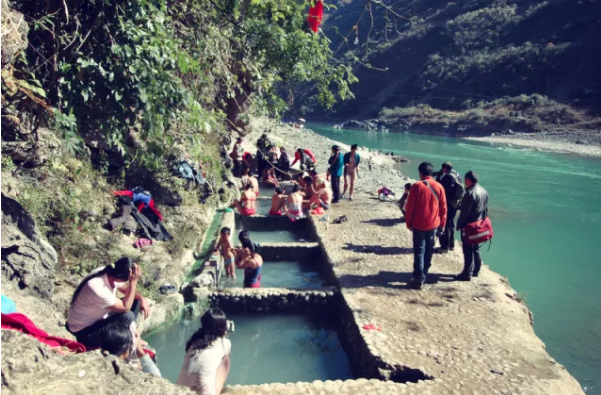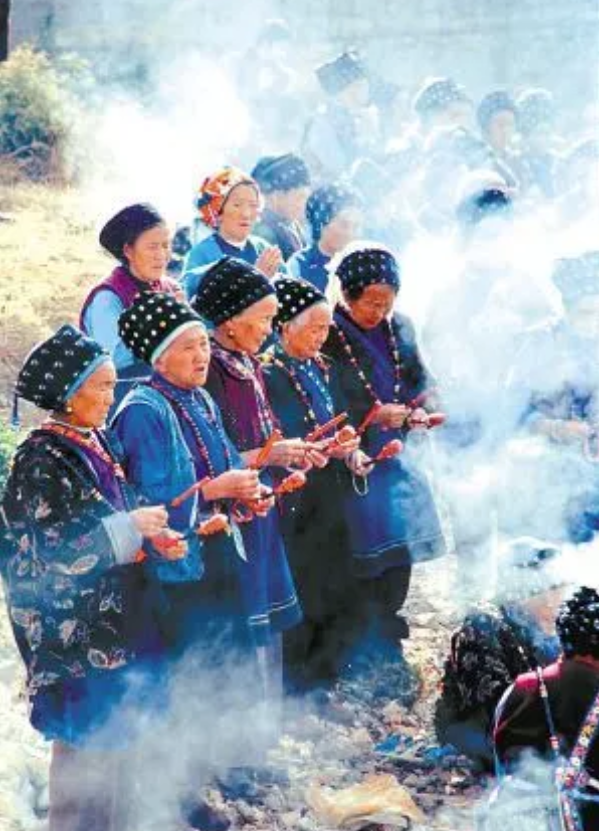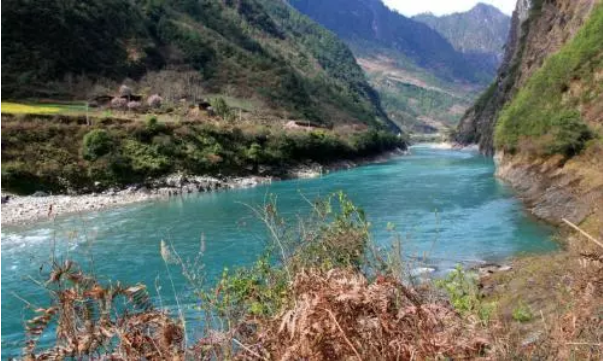Spring bathing of Lisu people in NW Yunnan

When Begonias blossom and the Nujiang River waters are lucid, the Spring Bathing Festival, a unique tradition of the Lisu Ethnic Group, comes to NW Yunnan’s Nujiang Lisu Autonomous Prefecture. During the festival, Lisu people would take group baths in hot springs because they regard spring water as holy liquid which can wash away bad lucks of previous year.
A lively scene

The festival makes a lively event, coupled with prefecture’s beautiful scenerty and peaceful air. The festival usually fall around the new-year day in the Chinese lunar calendar (generally in January or February). In Liuku County, the second day of the year in lunar calendar is the liveliest scene of the county. People wear traditional costumes with happiness on their faces. It is also the time that local drivers call on visitors to take part in group bathing.
Lisu people they bring food and luggage and gather together beside public hot spring pools. It is a tradition which has been lasting for over a century. For those who planned to join the event, they will be carrying baskets and gather in small groups and emerge at the bottom of the valley. Local folks normally live in deep mountains, looking forward to participating in the annual activity.
A solemn event

Far from a festival with randy imagination, it is actually a solemn event for the locals. They take bathing as an action of civilization, health and purity. Men and women will wear their best clothes and even elders live in mountains are willing to attend, in spite of steepness of the paths.
People respect each other and stress manners during the bathing. Generally, the elders will bath first and then the youngsters will follow. Women go and prepare for meals when men are bathing and men go to collect firewood and hunt while women bathing themselves.
People who come to bath will build a bamboo shed or find a cave in regions just hundreds of meters away. They’ll stay for several days and bath seven to eight times in a day.
They believe that illnesses will be removed and health will be improved by bathing in hot springs. Through the way, they’ll take part in labor in full energy next year.
For locals, they’ll dance and sing beside these spring pools. Musical instruments like lute and jew’s harp will also be played. It is a carnival actually, and the spring pools are called “Bathing Paradise”.
Spring pools

Lisu people in different regions have their own holidays, therefore the bathing festival occur in succession. For example, Lisu people in Fugong County have their bathing festival in Jan. 1 while the ceremony will be held during Chinese New Year in Lushui and Gongshan County.
But since plenty of hot spring pools are scattered in valleys of Nujiang River, where there is a pool, there is a wonderful place to bath.
The locals told us that in addition to Mabu and Dishuihe Hot Springs, Denggeng Hot Spring in Lushui County is favored the most. It lies in a group of hot springs which are only 12 km to the north of the county. Nobody can tell how many spring sources in the region. But it got a nickname of “16 Spring in Valley” with the average water temperature of 50℃ and the highest temperature of 80℃.
Further development

Bathing in hot springs is no longer confined to body cleaning. The event has developed into various activities. During the holiday, besides bathing, swing playing, singing and dancing, activities like film show and crossbow competition are too held.
Previously, as living quarters are cut off by deep mountains, young men and women in different areas are hard to communicate and meet in person. The bathing ceremony now provides a platform for youngsters to make friends. As a matter of fact, a lot of them know and fall in love with each other by antiphonal singing on the event and become lifelong soul mates.
Translating by John Li